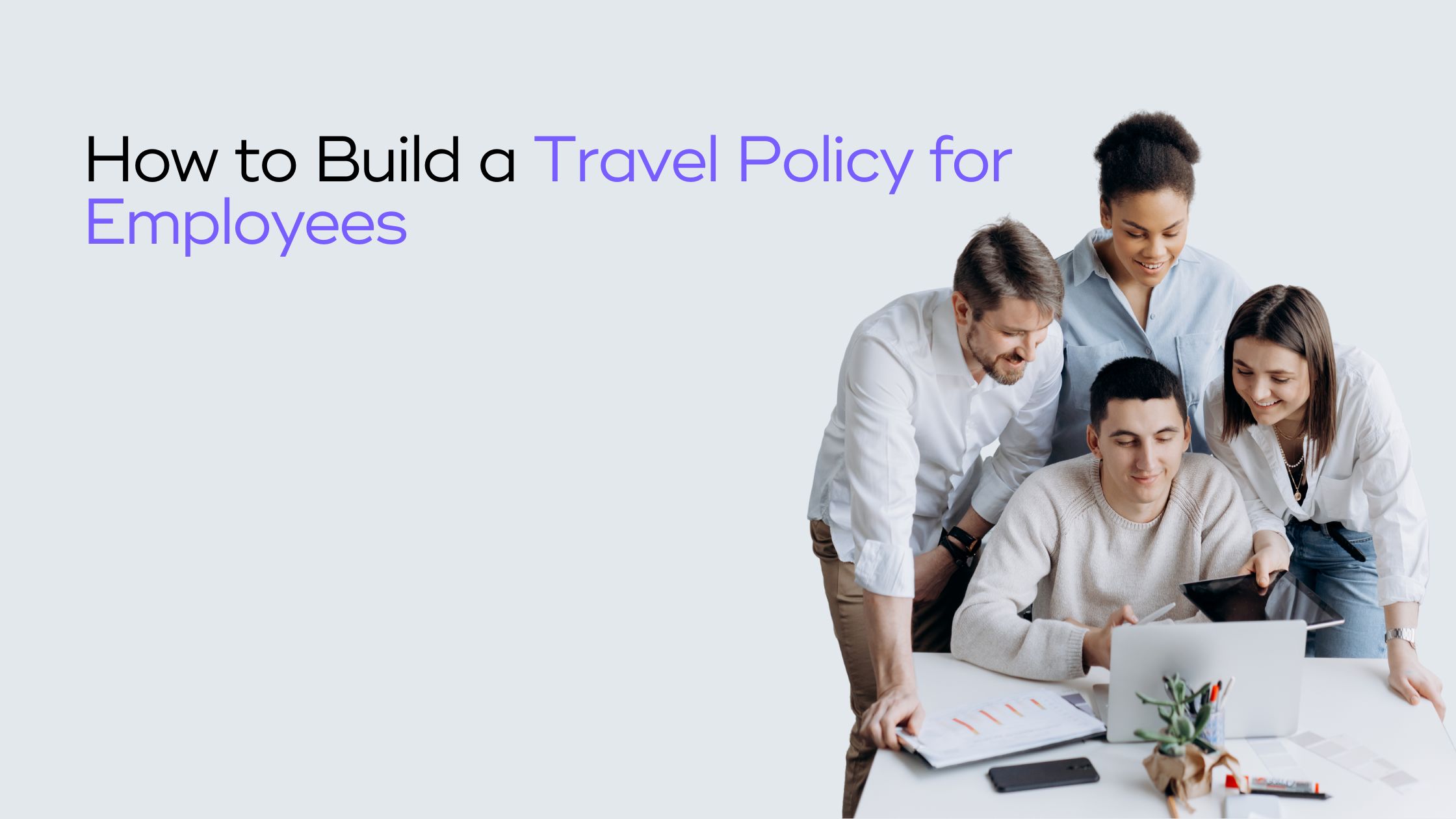Business travel is essential—but without structure, it quickly becomes chaotic. From last-minute bookings to unclear approvals and scattered reimbursements, unmanaged travel can cost your company more than just money—it can lead to confusion, frustration, and even risk. That’s why having a well-defined travel policy for employees is crucial.
Yet, according to reports, 42% of companies still lack a formal travel policy, and 11% struggle with policy compliance(1). That’s a huge governance gap—and one that HR teams are uniquely positioned to solve.
In this blog, we’ll show you what the most successful companies are doing right and how you can build a travel policy that’s clear, scalable, and employee-friendly.
What We Learned From 10 Successful Companies
While building this article, we looked at how 10 companies—both Indian and international—manage their travel programs. These companies varied in size and industry, but they all had one thing in common:
The best travel policies for employees are clear, simple, and useful.
They’re not just long PDFs stored somewhere in the HR drive. They’re living documents that help teams travel smarter—and safer—without slowing them down.
Let’s break down the 7 essential elements you need to create a strong travel policy for employees, especially if your team is expanding.
7 Key Things Every Travel Policy Should Include
These essential elements help create a travel policy that’s clear, practical, and supportive for both your employees and your business.
1. Scope: What Counts as Business Travel?
Your first step? Define what qualifies as official travel.
Is it only for client meetings and external events, or do internal training sessions, team retreats, and conferences count too?
Why it matters: When your scope is clearly defined, employees know exactly when the policy applies. It prevents grey areas and unnecessary back-and-forth with HR or finance.
2. Budgets: Align Spending With Role & Purpose
Budgets don’t have to be rigid—but they do have to be realistic.
Create travel allowances based on:
- Employee grade or level
- Trip purpose (e.g. sales, training, leadership)
- City or country of travel
Why it matters: This approach helps you balance cost control with comfort. Junior team members don’t need five-star stays, but your leadership team may require different standards.
3. Approval Flow: Clarity Before the Booking
Who approves what? And how long should it take?
Define a clear and quick approval workflow so that bookings don’t get stuck in an email loop. You can even define emergency or fast-track approvals for last-minute travel.
Why it matters: A well-defined approval process ensures faster bookings, better rates, and fewer delays.
4. Preferred Vendors: Consistency Saves Costs
List preferred airlines, hotels, and cab vendors that your employees must use. This creates consistency in travel quality and allows your company to negotiate better rates.
Why it matters: You get the benefit of volume discounts, easier tracking, and trusted service providers. Employees also don’t waste time comparing 20 different options every time they book.
5. Reimbursement Rules: Clear, Simple, Hassle-Free
If your company follows a reimbursement model, you must spell out:
- Which expenses are reimbursable
- What supporting documents are needed
- Submission timelines
- Processing time for reimbursements
Why it matters: No employee wants to chase finance for weeks—or guess whether their meal bill will be covered. Clear rules build trust and reduce internal friction.
6. Safety Guidelines: Because Employee Wellbeing Comes First
Your policy must address what to do in case of:
- Health emergencies
- Natural disasters or unrest
- Lost passports or travel documents
- Access to emergency assistance
Why it matters: Travel can be unpredictable. A strong policy ensures your employees know what support they’ll receive and how to get help—especially when they’re far from home.
7. Bleisure Travel: Work + Leisure = Clear Boundaries
“Bleisure” travel—where employees extend business trips for personal time—is increasingly common.
Allow it, but set clear rules:
- Must the personal leg of the trip be self-funded?
- Can the employee book their return ticket later?
- Does insurance cover the extended days?
Why it matters: Flexibility improves morale, but policies ensure the company doesn’t pay for a weekend holiday.
Why a Good Travel Policy Is More Than Just a Rulebook
A well-crafted travel policy for employees doesn’t just control budgets. It gives employees confidence.
They know what’s expected, what’s allowed, and where to go for help. It:
- Speeds up travel bookings
- Reduces admin work for HR and finance
- Improves employee experience
- Helps you stay audit-ready and compliant
Think of it as your travel playbook—not a list of restrictions, but a smart way to keep your people moving safely and efficiently.
How CoTrav Helps HR Teams Create Policy-Backed, Stress-Free Travel
If managing business travel feels like a mess of approvals, vendor calls, and expense sheets—you’re not alone.
That’s where CoTrav comes in.
We help HR teams like yours:
- Set and enforce travel policies automatically
- Create multi-level approval flows
- Offer employees access to preferred hotels, flights & cabs—all in one place
- Track spending in real-time with easy reports
Whether you’re a growing startup or a large enterprise, CoTrav makes business travel organized, compliant, and stress-free—for you and your team.
Final Takeaway
If your company is scaling or already managing frequent travel, now’s the time to build (or refine) your travel policy for employees. Make it clear, fair, and practical. Empower your people to focus on the business—while you take care of the backend.
Remember: a great travel policy isn’t just about rules. It’s about trust, clarity, and confidence.
Need help implementing all this?CoTrav is here to support your travel goals—end to end.




